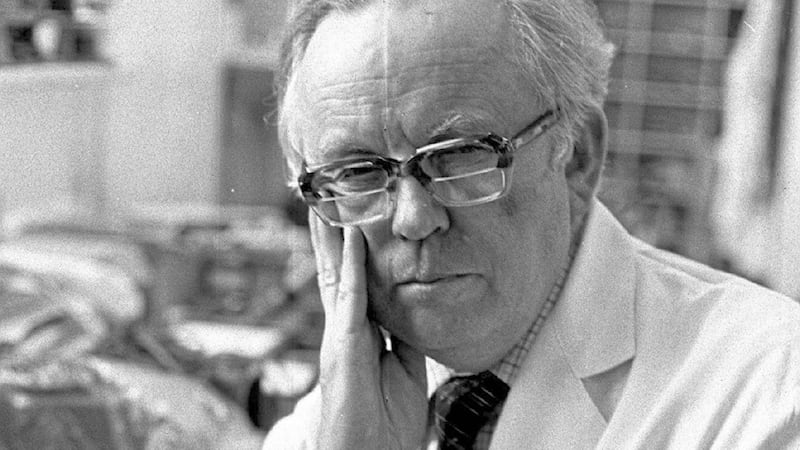THE portable defibrillator invented by a Queen's University professor has been named as one of the 100 best breakthroughs for its significant impact on people's everyday lives.
The late Professor Frank Pantridge from Co Down, a cardiology consultant at the Royal Victoria Hospital in Belfast, transformed paramedic services with his invention.
Hanging on the wall of public buildings across the world, the device is thought to have saved millions of lives, earning Prof Pantridge the name the "father of emergency medicine".
It has been included on a new list compiled by Universities UK as part of the MadeAtUni campaign to bring to life the difference institutions make to people, lives and communities.
The list of breakthroughs demonstrates how universities in Britain and Northern Ireland are at the forefront of some of the world's most important discoveries, innovations and social initiatives.
These include the creation of the internet, work tackling plastic pollution, ultrasound scans to check the health of unborn babies and the establishment of the living wage.
It also highlights the less celebrated breakthroughs that transform lives, including a specially-designed bra to help women undergoing radiotherapy; a toilet that flushes human waste without the need for water and a sports initiative that aims to use football to resolve conflict in divided communities.
In 1965, Prof Pantridge installed his first version of his portable defibrillator in a Belfast ambulance. It weighed 70 kg and operated from car batteries, but by 1968 he had designed an instrument weighing only 3 kg, incorporating a miniature capacitor manufactured for NASA.
Queen's Vice-Chancellor Professor Ian Greer said it was fitting that the life saving defibrillator was featured.
"Even after his death, his work continues to save lives. Professor Pantridge is rightly regarded as the father of emergency medicine and his invention was a genuine, life-saving breakthrough," Prof Greer said.
"We are proud of the work of our academics, both past and present, and the difference they are making to people, lives and communities, right across the globe."


